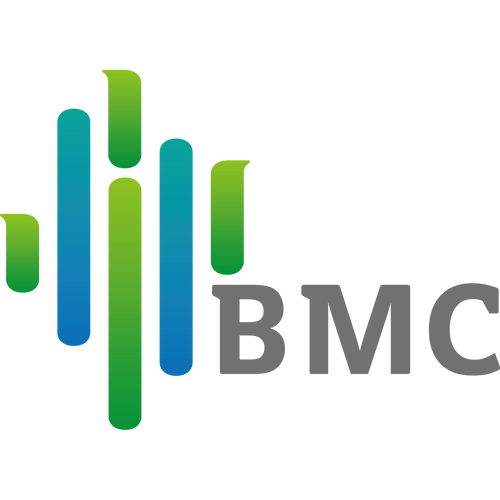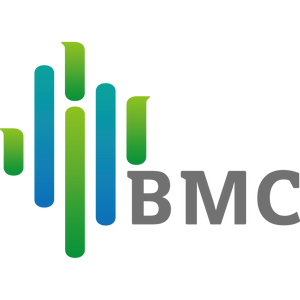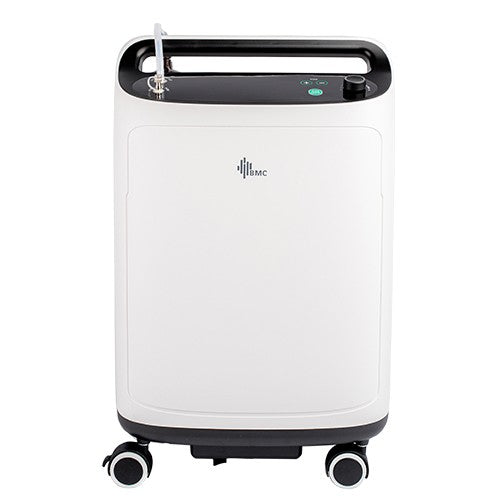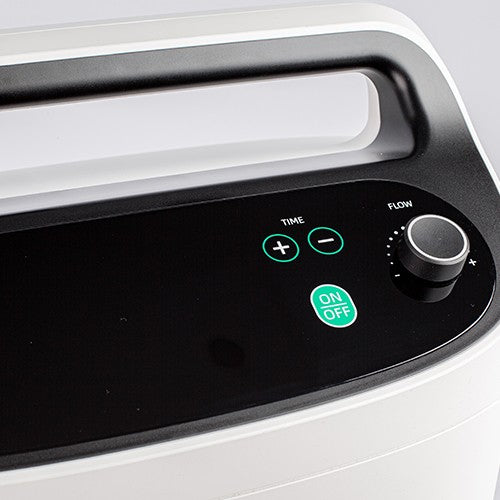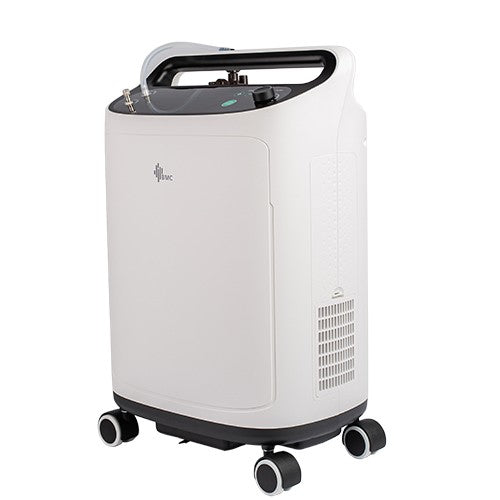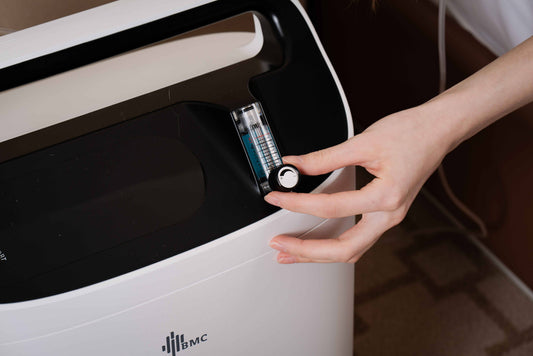What is a cpap machine?
Continuous positive airway pressure (CPAP) is the most effective treatment if you have moderate to severe OSA.
CPAP is a simple machine that blows air through a mask you wear at night. It’s designed to hold your airway open while you’re asleep. It sends air at pressure into your upper airway to stop it collapsing or narrowing. Your sleep clinic or the machine itself will set the pressure for you.
When you have sleep apnea, your upper airway gets blocked during your sleep. This can lead to fatigue, heart problems, high blood pressure, and other serious health problems. A continuous positive airway pressure (CPAP) machine -- a device that delivers air pressure through a mask while you sleep -- is the most common treatment for sleep apnea. With it, your airways can stay open and your body can get more oxygen to help it work well.
How PAP device works for SDB?
Through a positive airway pressure support, to solve the problem of airway collapse, thus solving the problem of hypoxia.
what cpap machine do i need?
If you’re new to CPAP therapy, it may surprise you to hear that there are multiple types of PAP machines. While they all rely on the same positive airway pressure, the way they determine and deliver that pressure differs.
CPAP - Continuous Positive Airway Pressure: The most commonly prescribed type of PAP machine, the standard (or fixed pressure) CPAP delivers a constant flow of air at one consistent pressure all night long. These are generally considered the most effective and affordable treatment for sleep apnea.
BiPAP - BiLevel Positive Airway Pressure: Also called BiLevel CPAP, these machines offer two pressure levels: A higher pressure during inhalation provides the support your airway muscles need, while the second, lower pressure during exhalation allows you to breathe more naturally. BiPAP machines are typically prescribed for patients with additional health concerns, like COPD or a history of heart disease, or who have a more complex sleep disorder, like Central Sleep Apnea.
APAP - Automatic Positive Airway Pressure: Also called AutoCPAP, Auto-Titrating CPAP, or Auto-Adjusting CPAP, these machines use sophisticated algorithms to measure your breathing and adjust your air pressure accordingly. This means that the APAP delivers only the exact amount of pressure you need when you need it. These are often prescribed for people who have difficulty adjusting to CPAP use.
Though the machine can adjust itself, APAP machines are not a substitute for a sleep study, and the range of pressure settings should be prescribed by a doctor or sleep specialist.
Travel CPAP: Travel CPAPs deliver the same airway pressure therapy, and often have the same features as their larger cousins, but with a compact, travel-friendly design! Travel CPAPs are a must-have for OSA patients who frequently travel, but may or may not be designed for everyday use.
Your prescription will need to specify the type of PAP machine you’re allowed to buy, so talk to your doctor or healthcare provider about your preferences.
How CPAP controls sleep apnea?
Continuous positive airway pressure is a treatment option for sleep apnea.
As you sleep, CPAP provides air at a pressure just high enough to prevent the collapse of your airway. The pressurized air is provided through a mask that seals with your mouth or nose. This allows you to breathe without much effort and sleep without waking up.
The CPAP machine doesn't breathe for you. You can breathe in and out normally on your own.
Some people require different pressures during the inhale and exhale cycle to help them breathe more normally or comfortably.
A variety of masks are available. If one type of mask or machine isn't comfortable, ask your doctor for suggestions about other options for you.
How does a CPAP machine work?
A CPAP machine takes in room air, then filters and pressurizes it before delivering it through a tube and into your mask. The continuous flow of air gently keeps your tongue, uvula and soft palate from shifting too far into your airway. This stabilizes your breathing and improves your overall sleep quality.
What are the advantages of a CPAP machine?
CPAP machines prevent breathing interruptions caused by sleep apnea. These devices also eliminate harmful sleep apnea side effects. Notable CPAP machine benefits include:
->Improved sleep quality.
->Lower risk of heart attack and stroke.
->A reduction in daytime sleepiness.
->Possible improved sugar management in people with diabetes.
What are the different types of CPAP masks?
There are a few different types of masks available. The kind that’s best for you depends on your comfort level, breathing habits and the type of sleep apnea you have. CPAP mask types include:
Nasal mask. This option covers your nose. A nasal mask is often recommended for people who move around a lot when they sleep.
Nasal pillow mask. Rather than covering your entire nose, a nasal pillow mask only covers your nostril area. Some options also have prongs that fit into your nostrils. People who wear nasal pillow masks can wear their glasses comfortably.
Full mask. This triangular mask fits over your nose and mouth. A full mask is best for people who breathe through their mouth during sleep. Your healthcare provider may also recommend this type of mask if you suffer from a nasal blockage.
